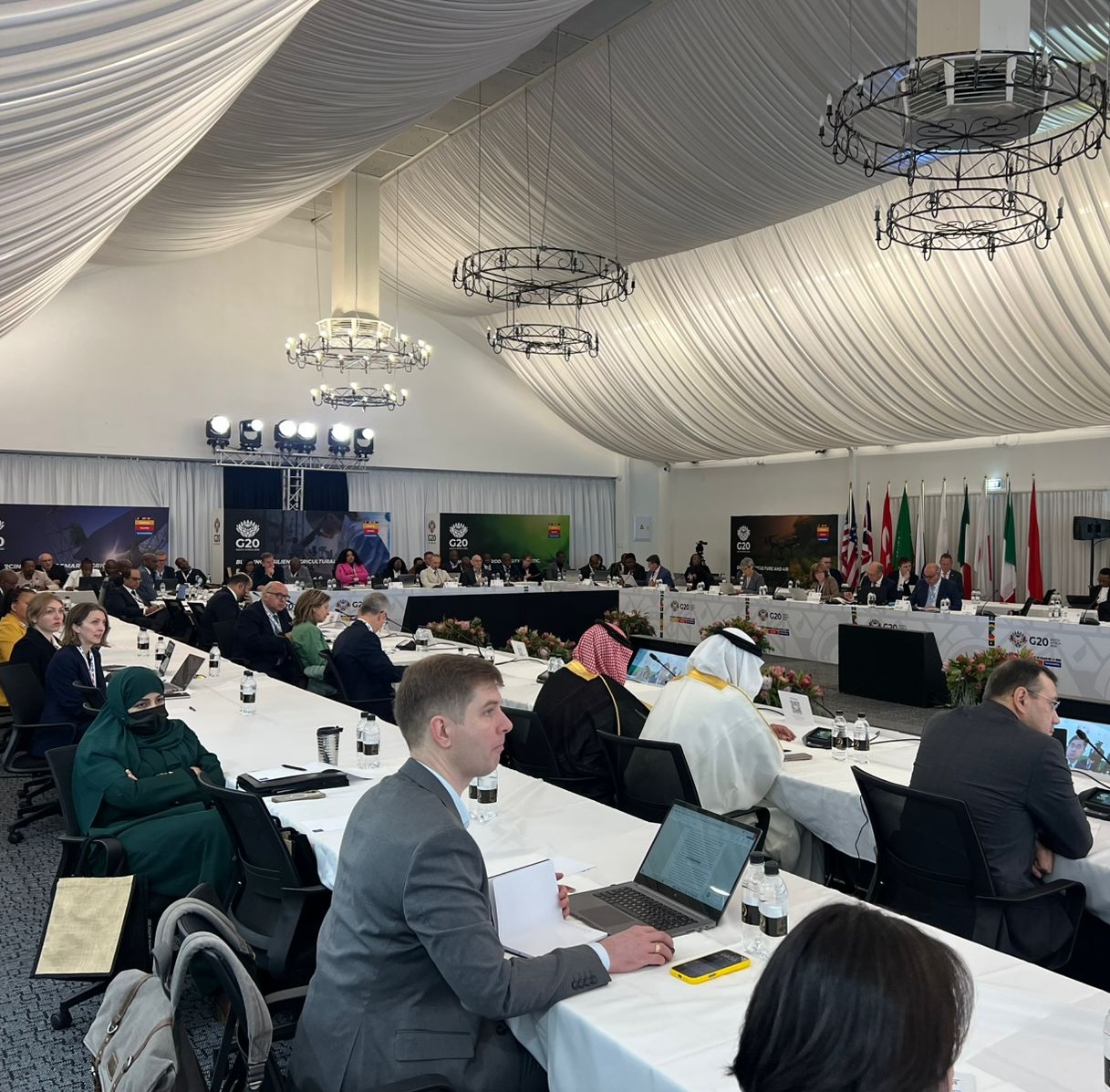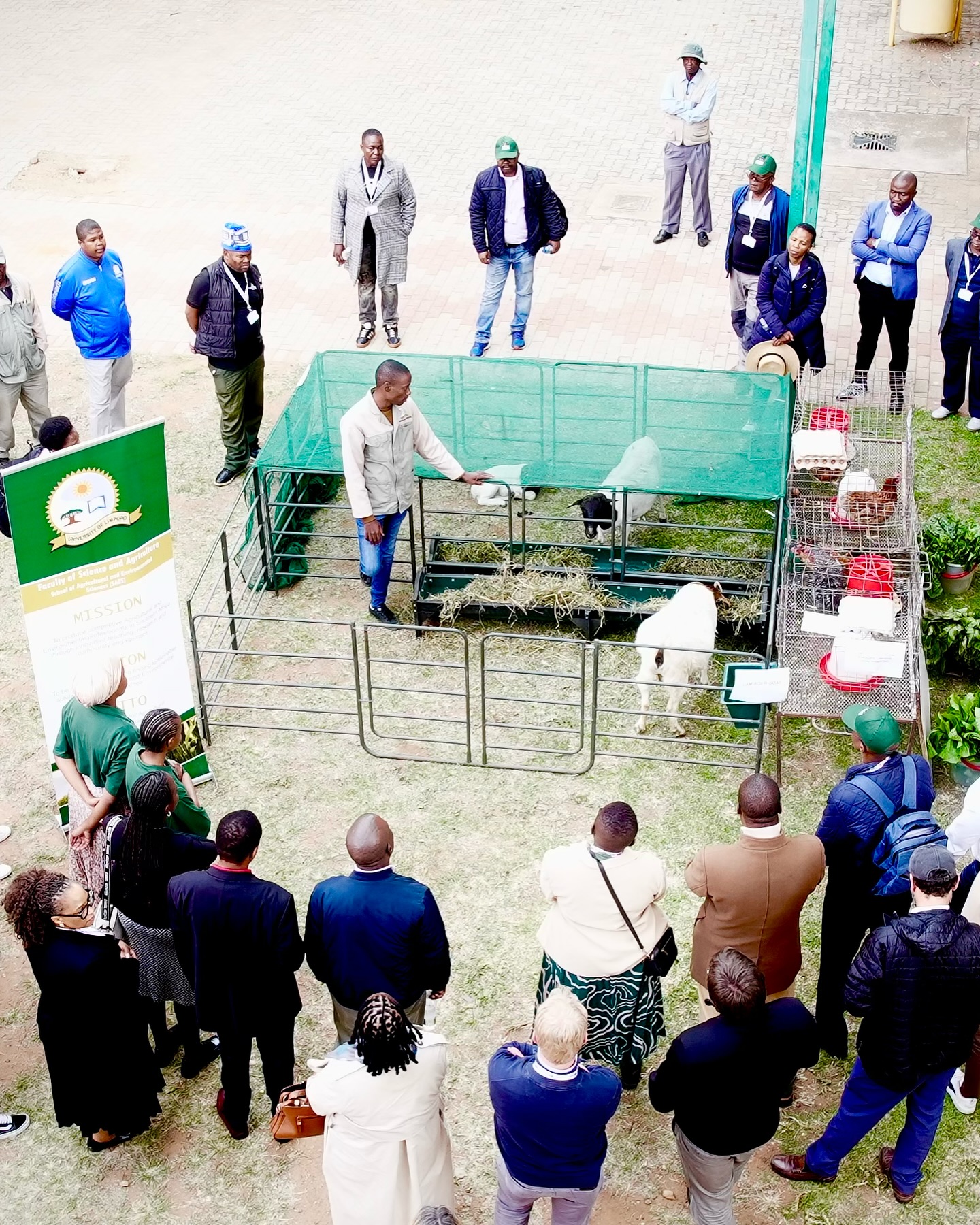
From May 26-28, 2025, the G20 Meeting of Agricultural Chief Scientists (MACS) convened in Polokwane, Limpopo Province, South Africa, under the leadership of South Africa’s G20 Presidency. The event brought together top agricultural science leaders from G20 member countries and sub-regional, regional and international stakeholders, including FAO, CGIAR, AUC, FANRPAN, FARA and CCARDESA, among others. The Centre for Coordination of Agricultural Research and Development for Southern Africa (CCARDESA) participated in the meeting as an observer.
CCARDESA’s presence underscored the increasing recognition of the role that regional bodies play in driving science-led, inclusive agricultural transformation in Africa. More than a technical consultation, the MACS 2025 served as a strategic platform to align global research priorities with regional and national implementation, guided by the overarching theme: “Solidarity, Equality, Sustainability.”
Key Takeaways from MACS 2025
The dialogue revolved around three strategic pillars:
- Harnessing Science, Technology, and Innovation for Climate-Resilient Agriculture: Participants stressed the urgency of deploying scientific and technological solutions to address the interlinked threats of climate change, declining productivity, and food insecurity - challenges acutely felt in vulnerable regions like sub-Saharan Africa.
- Enhancing Global and Regional Research Collaboration: The MACS reaffirmed the value of coordinated research systems and international cooperation. Stronger partnerships between countries, research institutions, and development organizations were seen as essential to tackling complex, cross-border challenges in agriculture.
- Promoting Inclusion and Equity in Agri-Food Systems: There was broad consensus on the importance of innovation systems that actively include women, youth, and marginalized communities - acknowledging their vital role in food systems and rural economies.
 |  |
From Dialogue to Regional Implementation
As the SADC body responsible for coordinating agricultural research and development, CCARDESA is well positioned to help translate the global commitments made at the MACS into practical, regional-level action. The strategic pillars of the meeting closely mirror CCARDESA’s ongoing work, particularly under the World Bank-supported Food Systems Resilience Programme (FSRP), which aims to build long-term agricultural and climate resilience in the region.
- Scaling Innovation for Resilience: CCARDESA is supporting the roll-out of key innovations such as Digital Agro-Climate Advisory Services (DACAS), climate-smart technologies, and integrated early warning systems to help farmers adapt to changing climate conditions and enhance productivity.
- Strengthening Research and Knowledge Networks: By linking National Agricultural Research Systems (NARS) with global institutions, CCARDESA fosters knowledge exchange, access to cutting-edge science, and collaboration that advances evidence-based agricultural solutions - aligned with the MACS’s call for stronger international research partnerships.
- Championing Inclusive Agricultural Transformation: Through initiatives that integrate gender equality, youth innovation, and participatory research methods, CCARDESA is ensuring that food systems transformation is inclusive and socially responsive.
- Informing Policy with Evidence: CCARDESA plays a key role in bridging science and policy, ensuring that research findings shape national agricultural investment plans and regional strategies - a message strongly reinforced at the MACS.
Looking Ahead
The 2025 G20 MACS meeting reaffirmed the global commitment to transforming food systems through innovation, collaboration, and inclusivity. For CCARDESA and its regional partners, it marked a valuable opportunity to engage with global peers, align efforts, and reaffirm their role in driving impactful agricultural research. With sustained investment, strong partnerships, and political support, the outcomes of MACS 2025 can catalyze concrete progress in building resilient, inclusive, and sustainable food systems across Southern Africa.
Photos: Agricultural Research Council and Farmer's Weekly SA






